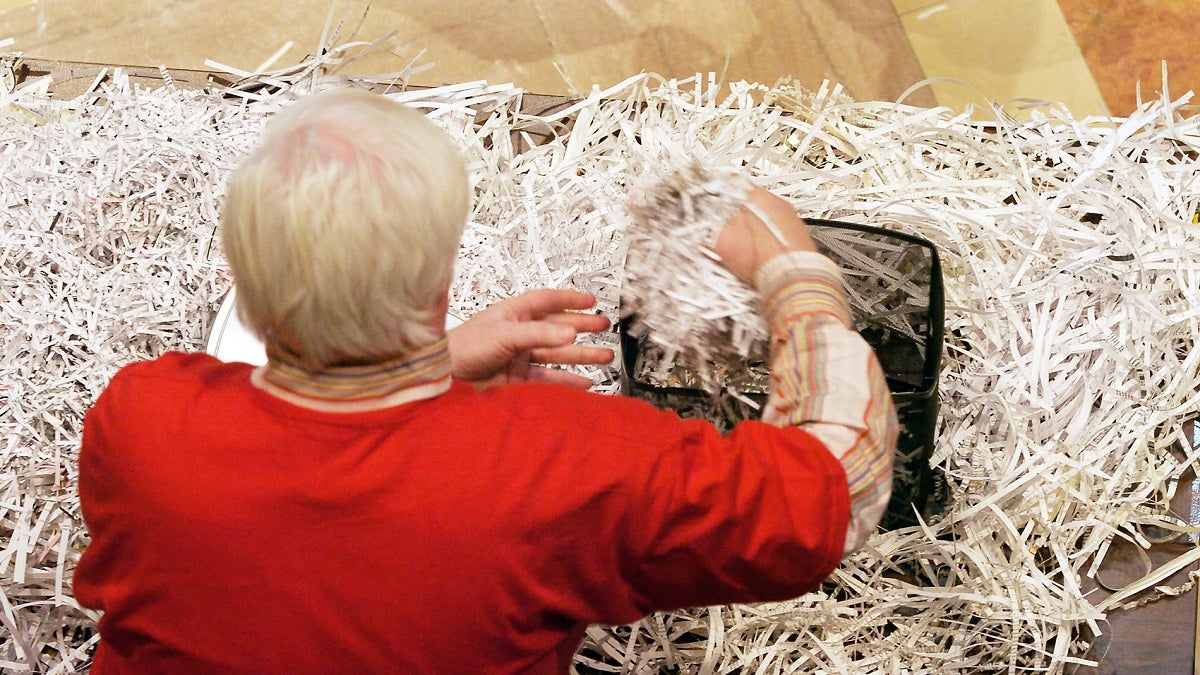Pa. ethics filings being sent to shredder [audio]

After five years
Anyone with Internet access can read the 2012 financial interest statements that disclose gifts accepted by Pennsylvania public officials.
But after five years, the state Ethics Commission doesn’t keep such records on hand and the State Archives has stopped preserving the documents as well.
Every May, Pennsylvania’s public officials have to send the state Ethics Commission financial interest forms, detailing their sources of income, any standing debts, and any gifts they’ve received.
The most recent disclosures are just over month old. They detail gifts such as $5,000 gala tickets for lawmakers and Turkish robes for Gov. Tom Corbett.
They’re all online for your perusal. But don’t wait too long to check them out. Those forms are available for just five years. After that, the digital files will be scrubbed from the state Ethics website.
It wasn’t always this way
The Pennsylvania Ethics Commission used to hold onto the documents for five years and send them over to the state archives.
But a few years ago, the archives decided to stop keeping financial interest forms that had been turned over to its care and destroy all the ones they had already accepted going back to the 1970s when Milton Shapp was governor.
Archives director David Haury says making the decision to send the documents to the shredder freed up a space the size of an SUV.
“If you pile them all up, they’d be a 15-foot-high stack of boxes for a 141 boxes, that’s somewhere around five-and-a-half or six-foot square,” said Haury.
The archives building in Harrisburg is a nondescript 20-story tower stacked to the hilt with 70,000 boxes.
Haury has a few reasons for wanting to torch the documents.
He says the financial interest statements were just starting to be stored digitally, and the Archives doesn’t have the capacity to take that many digital documents. Plus, it had held on to paper financial forms for decades “and no one was using them, and hadn’t used them since we’d acquired them and we were also starting to run out of space.”
Other options
“We need to get them into the 21st century. These are not problems that don’t have solutions,” said government reform activist Tim Potts, of the group Democracy Rising Pa. “It’s just we have to figure out how we’re going to effect those solutions.”
Potts suggests lawmakers should give the archives more money to expand its digital-storage capacity.
“You have people who are in office for 10, 20, 30 years and we ought to have a complete record available for anybody who’s currently in public office,” said Potts.
But the thing to remember about the Pennsylvania Archives is that the agency doesn’t concern itself with things of merely temporary value.
“Our decision is always, we take documents in that have permanent value,” said Haury. “Our objective when we take something here is that we’re going to keep it forever. And if it has value for 12 years, or 20 years, then we expect the agency who created it to keep it for that time.”
That would be the state Ethics Commission. Director Rob Caruso, says it would be “cumbersome” to keep financial interest forms indefinitely for everyone who files them.
“I think there needs to be a cutoff point,” said Caruso. “I think maybe what might be a better course of action would be to determine, you know, positions such as governor, particularly governor or lieutenant governor retain those forms for a longer period of time for historical purposes.”
He says it would be possible to have the agency hold onto the financial interest statements for longer than five years. His staff could make such a suggestion to its commissioners.
However, those commissioners who approve retention schedules are appointed by the governor, the lieutenant governor, and legislative caucus leaders — all of whom have to file financial interest statements of their own.
WHYY is your source for fact-based, in-depth journalism and information. As a nonprofit organization, we rely on financial support from readers like you. Please give today.

